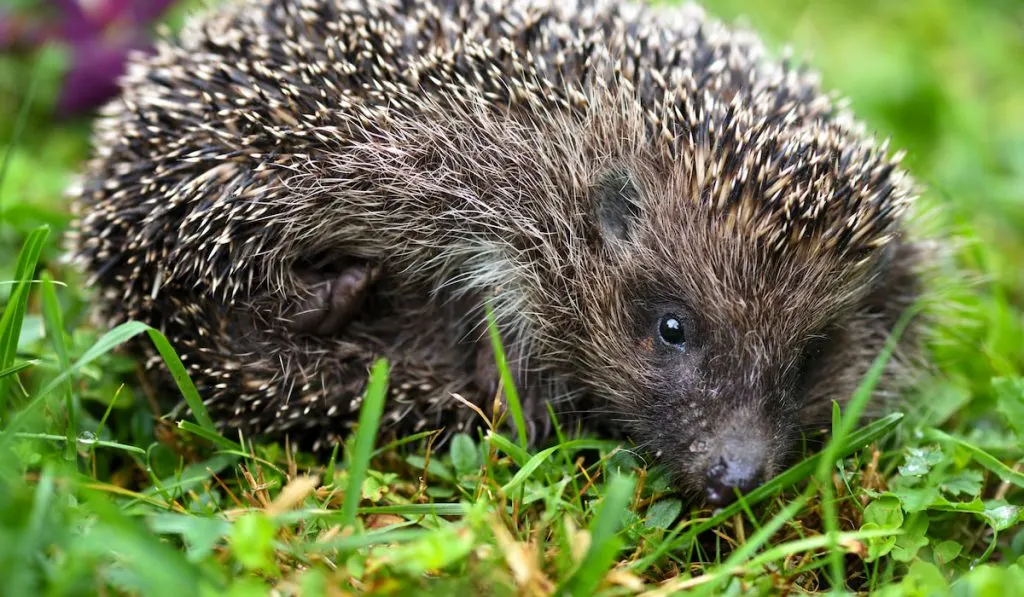You probably already know chocolate is not something any dog should eat.
But now you are wondering if hedgehogs will have better luck canines.
Can hedgehogs eat chocolate? No, they cannot.
Like dogs and many other animals, some of the compounds in chocolate can be toxic to hedgehogs. Besides, chocolate contains a lot of fat and sugar.

If consumed by a hedgehog, the hedgehog will most certainly become overweight. Being chubbier might be cute to some pet owners, but it is detrimental to the health of the hedgehogs.
The rest of this article will explore some of the details of the consumption of chocolate by hedgehogs.
Can Hedgehogs Eat Chocolate?
While humans can enjoy chocolate with minimal issues or no issue at all, many animals cannot. One such animal is a hedgehog.
Chocolate contains different substances that will upset the health of a hedgehog when consumed. One of these substances is milk.
Hedgehogs are lactose intolerant. So, when they consume milk, they suffer from digestive problems.
Some of the symptoms of lactose intolerance in hedgehogs are abdominal cramps, stomach pain, wind, bloating, nausea, and diarrhea.
If larger quantities of milk are consumed, the symptoms might be worse.
Dark or pure chocolate may not contain milk like other types of chocolate but it can still be harmful to hedgehogs.
Dark chocolate and other types of chocolate contain caffeine and theobromine. In a hedgehog, these substances elicit toxic effects in various organs.
Some of these effects include elevated blood pressure, tremor, abnormal heart rhythm, seizures, coma, and death.
The milder symptoms of caffeine toxicity in pets are vomiting and diarrhea.
If your hedgehog ever consumes chocolate and you notice any of the symptoms above, get it to a veterinarian immediately.
Another thing problem with chocolate is that it may contain preservatives. The chances are those preservatives are not safe for consumption by a hedgehog.
Besides all we have stated already, chocolate contains high levels of sugar and fat. For one, the level of fat in dark chocolate is about 31%.
An ideal hedgehog meal should contain at most 15% fat. So, consuming chocolate will also predispose hedgehogs to obesity.
According to the USDA, 100 grams of dark chocolate contains as much as 48 grams of sugar. Hedgehogs are sensitive to sugar as it can disrupt their digestive system.
Typically, this will lead to them becoming overweight. But sometimes, it can lead to weight loss.
Consumption of sugar may also play a part in suppressing the immunity of a hedgehog.

Why the Weight of Hedgehogs Matters
Fatty or sugary meals are generally not ideal for small pets. A hedgehog is a small pet, it is prone to being overweight, and it also has a small digestive system.
These 3 factors are some of the reasons why the weight of hedgehogs matters.
Since hedgehogs are tiny animals, their bodies are not very resistant. So, when they become obese or overweight, they become prone to diseases and infections.
Treatment of such disease and infections in hedgehogs is typically achieved with prescription medicines and antibiotics.
Sadly, if your hedgehog starts getting too many drugs, its lifespan may become shorter.
With their small size and small digestive systems, hedgehogs find it harder to burn calories. So, when they become obese, it is harder for them to get back to a healthier weight.
Diet-Related Hedgehog Diseases
As said already, when hedgehogs become overweight, they become open to various diseases and health issues.
Some of them include the following:
Hepatic Lipidosis
Hepatic lipidosis is a diet-related disease commonly diagnosed in hedgehogs.
It is a sequela of various other health issues, including obesity, infection, toxins, neoplastic disease, and cardiomyopathies.
It may also be a sequela of pregnancy and starvation.
Hepatic lipidosis is also known as fatty liver disease. Some of the symptoms include diarrhea, lethargy, loss of appetite, and yellowing of the skin.
Dilated Cardiomyopathy
Dilated cardiomyopathy is a common heart disease in hedgehogs.

It is typified by the enlargement of the heart of the affected hedgehog.
While the cause of this disease is not well known yet, it is suggested that diet, obesity, and genetics are possible components.
Dilated cardiomyopathy is common in hedgehogs that are at least 3 years old.
However, some 1-year-old hedgehogs have been affected too and the disease is slightly more common in male hedgehogs than in females.
A hedgehog with dilated cardiomyopathy might show the following signs:
- Difficulty breathing
- Weight loss
- Decreased activity
- Abdominal swelling due to ascites
- Sudden death
- On examination, the vet may hear heart murmurs.
Obesity
Obesity is also common amongst hedgehogs. You may start suspecting that your hedgehog is overweight when fat deposits protrude when it rolls up completely.

Fortunately, dietary adjustments and increased exercise can help treat obesity in hedgehogs.
A healthy diet should have low fat, low sugar, and high protein. The meals should also be rationed.
The treatment of obesity in hedgehogs should be gradual or it could lead to hepatic lipidosis.
Final Thoughts
Hedgehogs should not eat chocolate.
It is possible that chocolate might contain some nutrients that would be of benefit to them. But the overall downsides of chocolate far exceed the positives they could possibly get from it.
Resources
- http://hedgehogkeeper.com/what-can-hedgehogs-not-eat/#Chocolate
- https://smallpetsite.com/can-hedgehogs-eat-junk-food/
- https://africanpygmyhedgehogs.com/2020/03/11/what-cant-african-pygmy-hedgehogs-eat-list-of-45-bad-choices/#Chocolate
- https://hedgehogkingdom.com/can-hedgehogs-eat-chocolate/
- https://thehedgehog.co.uk/are-hedgehogs-lactose-intolerant/
- https://vcahospitals.com/know-your-pet/caffeine-toxicity-in-pets
- https://vcahospitals.com/know-your-pet/hedgehogs-diseases
- https://www.dvm360.com/view/diseases-and-treatment-pet-hedgehogs-proceedings
- https://www.msdvetmanual.com/exotic-and-laboratory-animals/hedgehogs/diseases-of-hedgehogs
- https://daneshyari.com/article/preview/2396785.pdf
